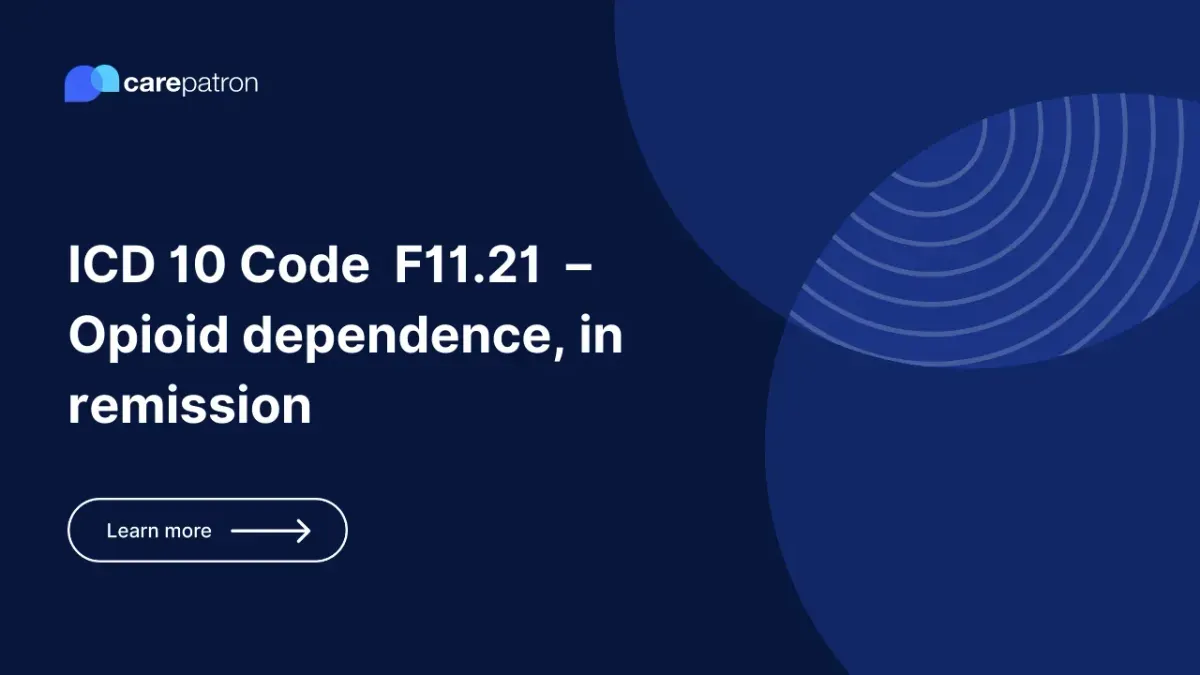
F11.21 – Opioid dependence, in remission
Learn about ICD-10-CM code F11.21 for opioid dependence in remission, including clinical info, related codes, and more.
Use Code
Commonly asked questions
No, remission does not equate to a cure. It means the individual is managing the condition and not actively using opioids.
Treatment generally involves a combination of medications (such as methadone or buprenorphine), counseling, and participation in support groups.
Yes, opioid dependence is often a chronic, relapsing condition. Even during remission, cravings and the risk of relapse can persist. Therefore, ongoing care is crucial.
EHR and practice management software
Get started for free
*No credit card required
Free
$0/usd
Unlimited clients
Telehealth
1GB of storage
Client portal text
Automated billing and online payments
